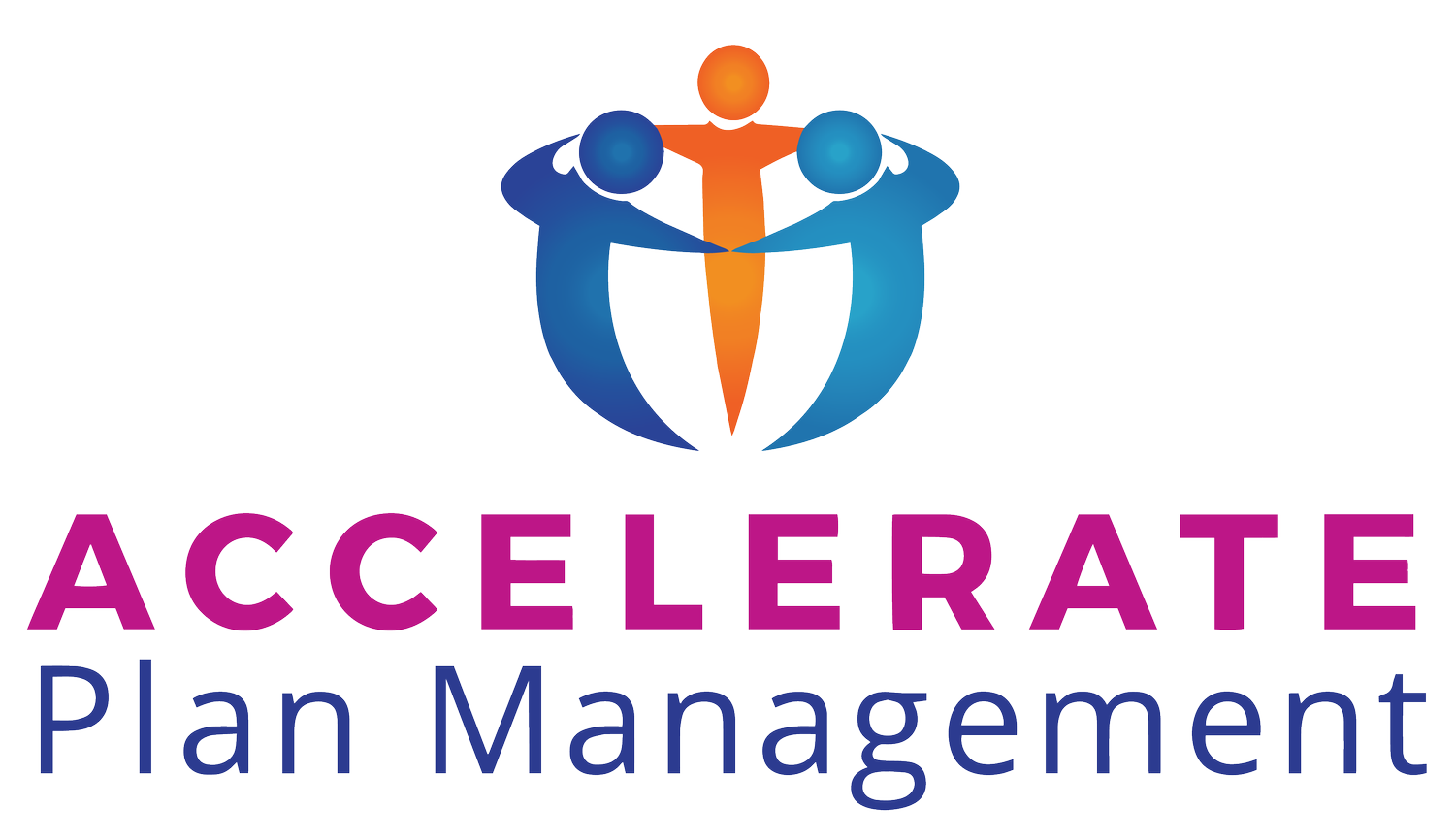Find answers to your questions fast with Accelerate PM.
FAQs
Please take a moment to browse our frequently asked questions to learn more about our products and services.
-
National: The NDIS is being introduced progressively across all states and territories.
Disability: The NDIS provides support to eligible people with intellectual, physical, sensory, cognitive and psychosocial disability. Early intervention supports can also be provided for eligible people with disability or children with developmental delay.
Insurance: The NDIS gives all Australians peace of mind if they, their child or loved one is born with or acquires a permanent and significant disability, they will get the support they need.
Scheme: The NDIS is not a welfare system. The NDIS is designed to help people get the support they need so their skills and independence improve over time.
-
NDIS plans outline your goals, aspirations and supports you require (including any funding you might receive). Your first plan is the start of a lifelong relationship with the NDIS. As your life changes, your plan will too. Everyone on the NDIS has their own unique plan.
-
NDIS participants have a choice about how to manage the funds in their plan.
This includes managing the financial transactions and paperwork and making sure you comply with NDIS rules around what is reasonable and necessary.
There are 3 ways your plan can be managed;
Plan managed
Self-managed
Agency managed
-
If you think you’d like someone to manage your plan for you, you have two options:
You choose for the NDIA can manage your funds or you can hire a plan management provider
Luckily for you, plan management providers are NDIS funded, so you’ll have a few options available to you, should you choose this route.
When you create your plan, you’re entitled to request funding for a ‘plan manager’. These providers are experts in handling funding. They will submit the paperwork, pay suppliers and keep the necessary records for you.
Plan management works similarly to every other service you receive with NDIS funding. However, this benefit come under the category of ‘Improved Life Choices.’ Simply put, having a plan manager is of no extra cost to you and won’t take away from your plan budget.
This means they’ll take the burden of managing your plans, and make sure everything’s handled correctly, so you don’t need to worry about it.
A few of their responsibilities include:
• Handling all your paperwork.
• Paying your invoices on your behalf.
• Filing away all your receipts and payments and keeping them safe.
-
There are many benefits of choosing a plan manager to handle your NDIS plan.
Although some of the main ones to note are as follows;
• Saves time and reduces stress
• Security and peace of mind
• Helps you get organised
• Flexibility, choice and control
• It’s ‘free’
-
A Support Coordinator will support you to understand and implement the funded supports in your plan and link you to community, mainstream and other government services. A support coordinator will focus on supporting you to build skills and direct your life as well as connect you to providers.
-
There are three levels of support coordination that can be included in your plan:
• Support connection
• Support coordination – coordination of supports
• Specialist support coordination
-
Your Support Coordinator will assist you to negotiate with providers about what they will offer you and how much it will cost out of your plan. Support coordinators will ensure service agreements and service bookings are completed. They will help build your ability to exercise choice and control, to coordinate supports and access your local community.
They can also assist you in planning ahead to prepare for your plan review.
Support coordinators will assist you to ‘optimise’ your plan ensuring that you are getting the most out of your funded supports.
-
Core: A core support is a service that assists a participant with completing daily living activities, such as assistance with daily life, transport and groceries.
Capital: A capital support is a service that offers financial support for an investment, such as assistive technologies, vehicle modifications or funding for capital costs.
Capacity Building: A capacity building support is a service that assists a participant be independent, such as finding and keeping a job, improved living arrangements or improved life choices.



